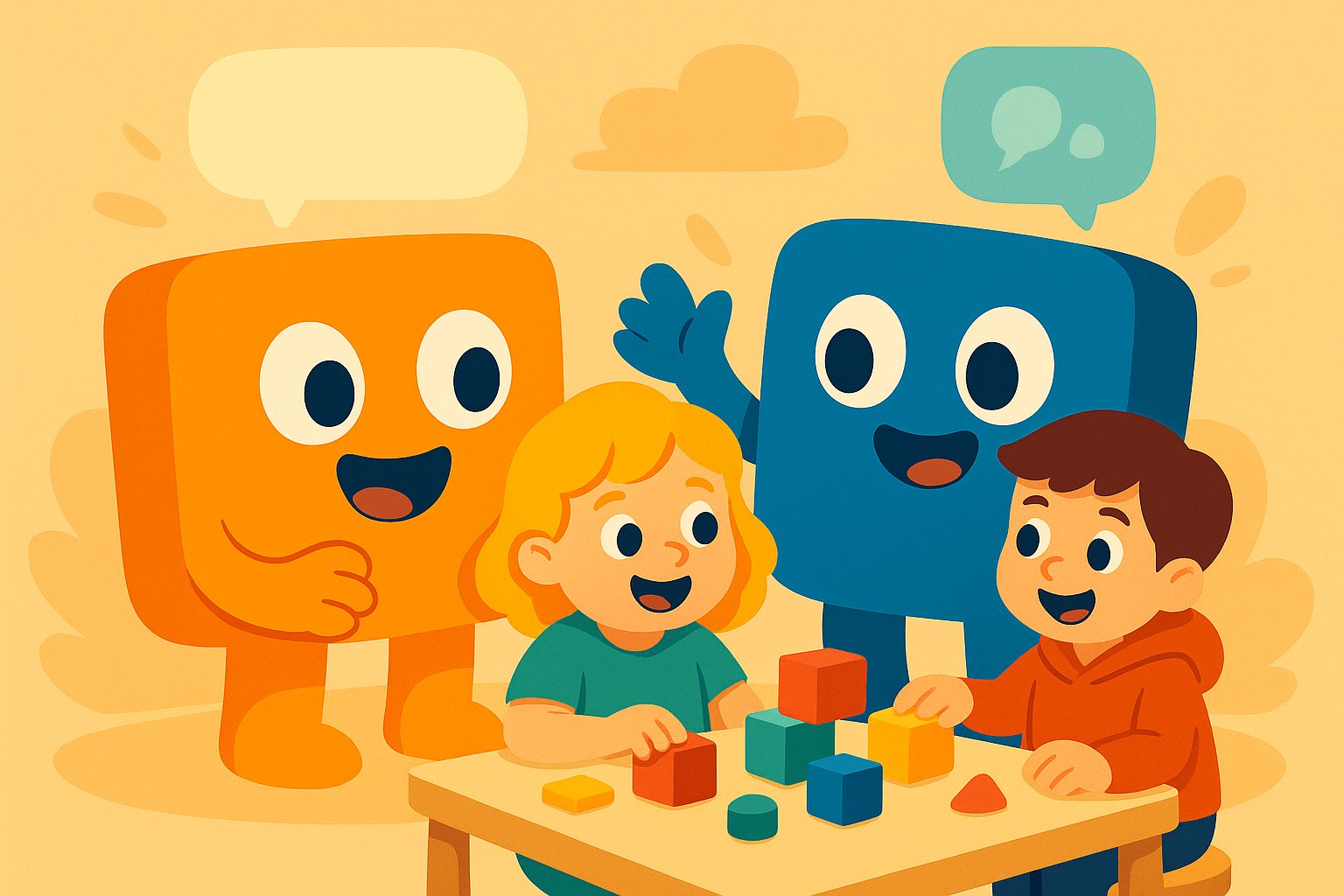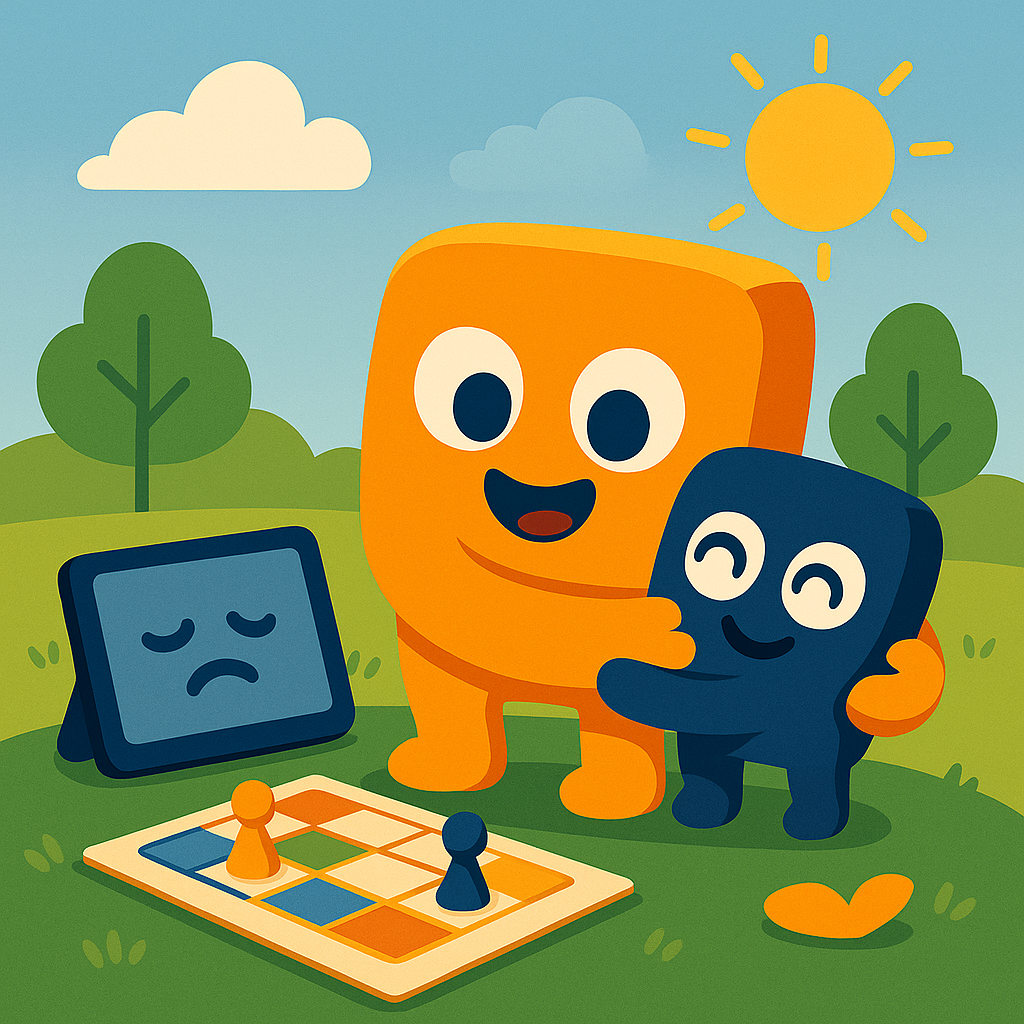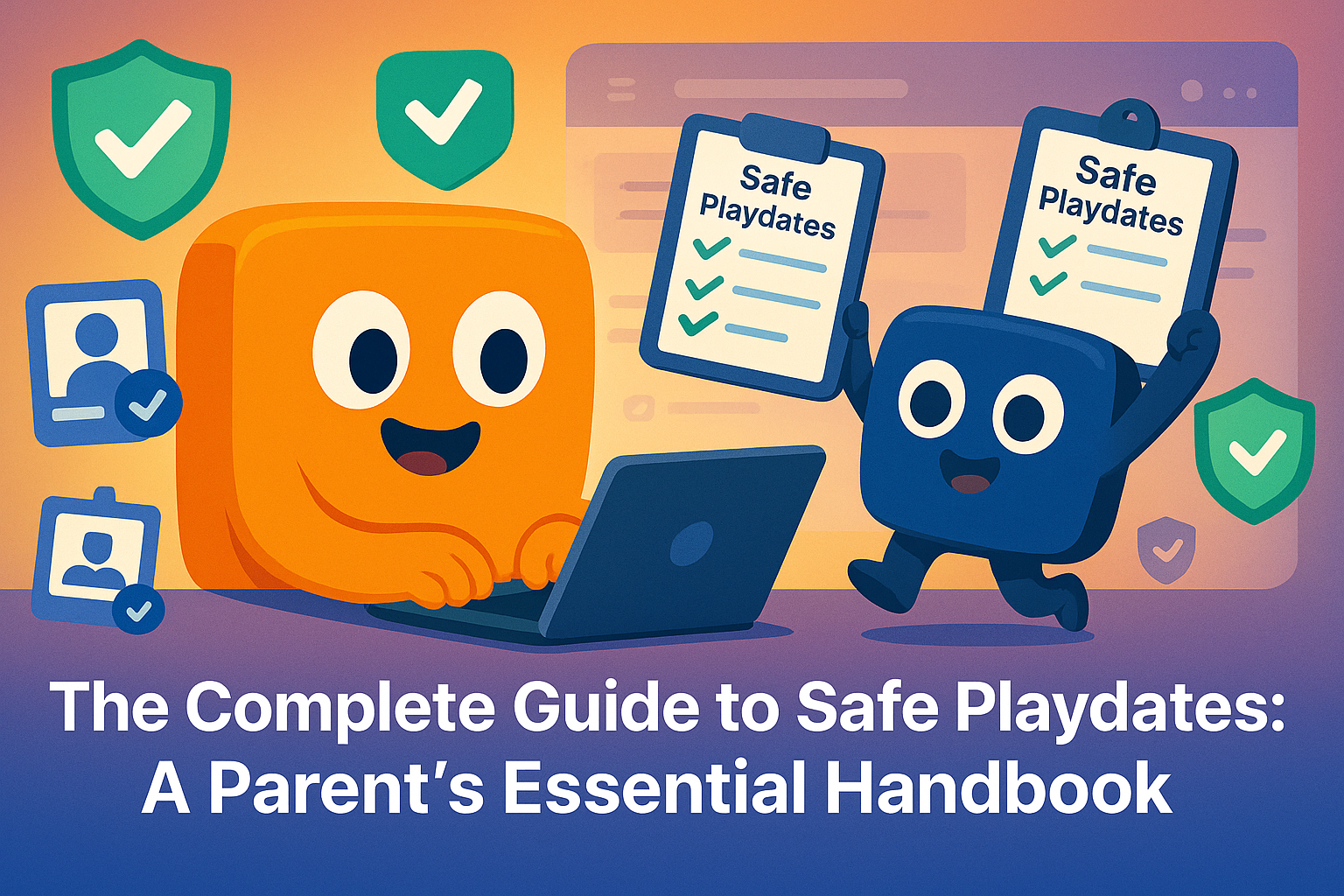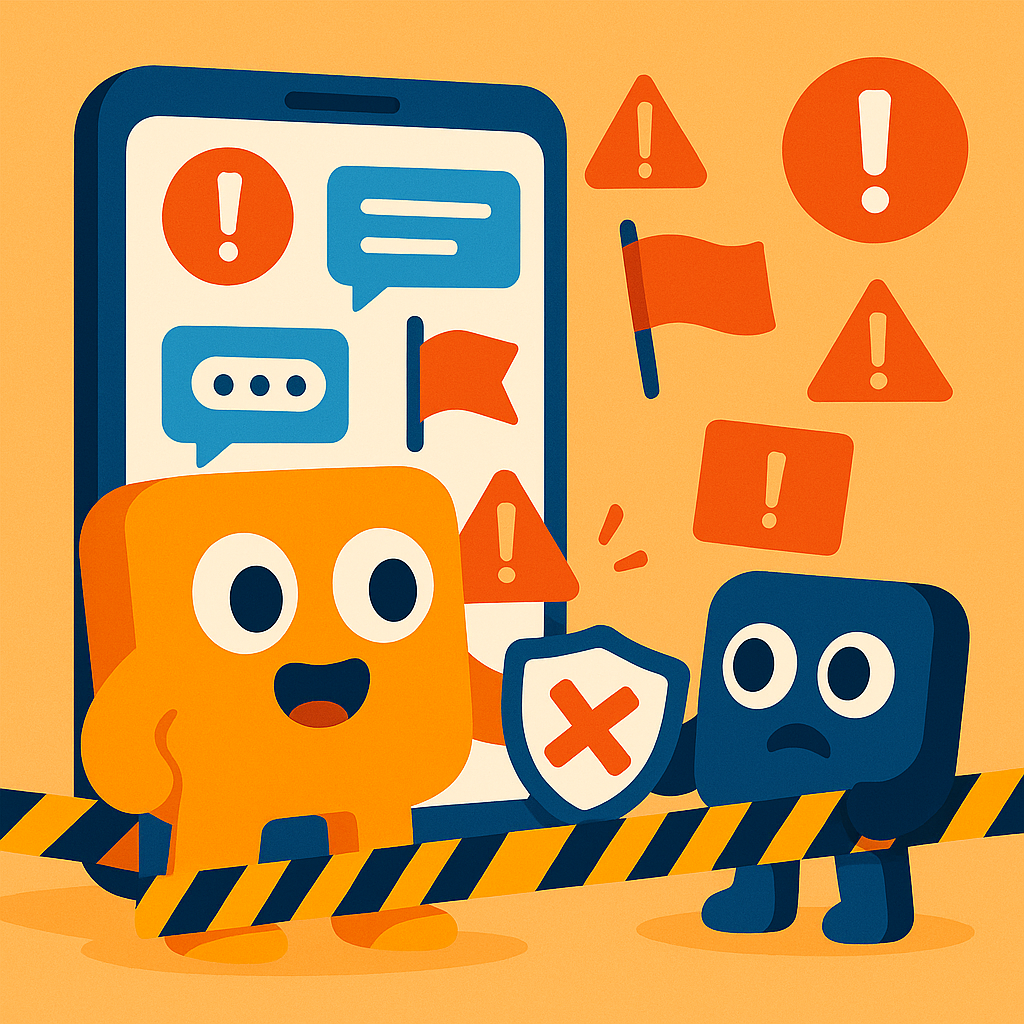Teaching Kids Social Skills: How Playdates Help Child Development
In our increasingly digital world, the importance of face-to-face social interaction for children cannot be overstated. Playdates aren't just fun activities—they're crucial learning experiences that shape your child's emotional intelligence, communication skills, and ability to navigate relationships throughout their life.
The Science Behind Social Development
Critical Development Windows
Research shows that children's brains are most receptive to social learning between ages 2-7. During this period, neural pathways for empathy, communication, and emotional regulation are rapidly forming.
Key Development Milestones:
- Ages 2-3: Parallel play and basic sharing concepts
- Ages 4-5: Cooperative play and friendship formation
- Ages 6-7: Complex social rules and conflict resolution
- Ages 8+: Deeper friendships and social hierarchy understanding
The Social Brain
When children interact with peers, multiple brain regions activate simultaneously:
- Prefrontal cortex: Decision-making and impulse control
- Mirror neurons: Empathy and understanding others' emotions
- Language centers: Communication and verbal expression
- Emotional centers: Emotional regulation and response
Core Social Skills Developed Through Playdates
1. Communication Skills
Verbal Communication:
- Learning to express needs and wants clearly
- Developing vocabulary through peer interaction
- Understanding tone and context in conversation
- Practicing active listening skills
Non-Verbal Communication:
- Reading facial expressions and body language
- Understanding personal space boundaries
- Using gestures and eye contact effectively
- Recognizing emotional cues from others
Practical Playdate Activities:
- Storytelling circles where children take turns
- Role-playing games that require dialogue
- Collaborative art projects with verbal planning
- Simple debate games about preferences
2. Emotional Intelligence
Self-Awareness:
- Recognizing their own emotions
- Understanding emotional triggers
- Learning to express feelings appropriately
- Developing emotional vocabulary
Social Awareness:
- Recognizing emotions in others
- Understanding how their actions affect peers
- Learning empathy and compassion
- Developing perspective-taking abilities
Emotional Regulation:
- Managing disappointment when games don't go their way
- Controlling impulses during exciting activities
- Learning to calm down when frustrated
- Practicing patience during turn-taking
3. Conflict Resolution
Problem-Solving Skills:
- Identifying the root cause of disagreements
- Brainstorming solutions together
- Compromising and finding middle ground
- Learning when to seek adult help
Negotiation Abilities:
- Taking turns fairly
- Sharing resources and toys
- Deciding on group activities
- Setting and respecting boundaries
Real-World Applications:
- Resolving toy disputes through sharing schedules
- Choosing group activities through voting
- Handling hurt feelings with apologies and forgiveness
- Learning to include others who feel left out
Age-Specific Social Development Goals
Toddlers (Ages 2-3)
Development Focus:
- Basic sharing concepts
- Parallel play skills
- Simple communication
- Emotional expression
Playdate Activities:
- Sensory play with multiple children
- Simple turn-taking games
- Music and movement activities
- Supervised free play with duplicated toys
Parent Support:
- Model sharing behavior
- Narrate social interactions
- Provide comfort during conflicts
- Keep playdates short (1-2 hours)
Preschoolers (Ages 4-5)
Development Focus:
- Cooperative play
- Friendship formation
- Rule-following
- Empathy development
Playdate Activities:
- Collaborative building projects
- Imaginative role-play scenarios
- Simple board games
- Group art and craft projects
Parent Support:
- Facilitate introductions and ice-breakers
- Guide conflict resolution
- Encourage inclusive play
- Gradually reduce direct supervision
School-Age (Ages 6-8)
Development Focus:
- Complex social rules
- Deeper friendships
- Independence in conflict resolution
- Leadership skills
Playdate Activities:
- Team-based games and sports
- Complex imaginative play
- Skill-sharing activities
- Community service projects
Parent Support:
- Allow more independence
- Discuss social situations afterward
- Help process complex emotions
- Encourage problem-solving
Tweens (Ages 9-12)
Development Focus:
- Peer group dynamics
- Identity formation
- Advanced communication
- Social hierarchy navigation
Playdate Activities:
- Interest-based clubs and activities
- Collaborative projects
- Social games and challenges
- Real-world skill development
Parent Support:
- Respect growing independence
- Be available for guidance
- Help navigate peer pressure
- Support individual interests
Creating Developmentally Appropriate Playdates
Structure vs. Free Play
Benefits of Structured Activities:
- Clear expectations and rules
- Specific skill development
- Easier conflict prevention
- Goal-oriented interaction
Benefits of Free Play:
- Natural social dynamics
- Creative problem-solving
- Authentic relationship building
- Self-directed learning
Optimal Balance:
- Start with structured activities for comfort
- Transition to free play as children warm up
- Have backup structured activities ready
- End with a calm, organized activity
Environmental Considerations
Physical Space:
- Adequate room for movement and play
- Defined areas for different activities
- Safe, child-proofed environment
- Quiet spaces for breaks or conflicts
Materials and Toys:
- Enough supplies for sharing or individual use
- Age-appropriate and engaging options
- Collaborative toys (building blocks, art supplies)
- Backup activities for different interests
Group Dynamics
Optimal Group Sizes:
- Ages 2-3: 2-3 children maximum
- Ages 4-5: 3-4 children
- Ages 6-8: 4-6 children
- Ages 9+: 6-8 children
Mixing Ages:
- Benefits: Mentorship opportunities, varied perspectives
- Challenges: Different developmental needs, potential exclusion
- Best practices: Small age gaps (2-3 years), structured activities
Supporting Social Development at Home
Before the Playdate
Preparation Strategies:
- Discuss expectations and rules
- Practice sharing and turn-taking
- Role-play common scenarios
- Choose appropriate activities together
Social Stories:
Create simple narratives about playdate scenarios:
- "When friends come over, we share our toys"
- "If someone feels sad, we can help them feel better"
- "Taking turns makes games more fun for everyone"
During the Playdate
Facilitation Techniques:
- Model positive social behavior
- Provide gentle guidance without taking over
- Celebrate successful social interactions
- Address conflicts calmly and constructively
Teaching Moments:
- Point out kind behaviors: "I noticed how you helped your friend"
- Encourage empathy: "How do you think Sarah feels right now?"
- Guide problem-solving: "What could we try to solve this problem?"
After the Playdate
Reflection and Processing:
- Discuss what went well
- Talk about challenges and how to handle them differently
- Celebrate social successes
- Plan improvements for next time
Reinforcement:
- Praise specific social skills demonstrated
- Connect playdate lessons to daily life
- Encourage continued friendship development
- Plan follow-up activities
Addressing Common Social Challenges
Shyness and Social Anxiety
Understanding the Challenge:
- Normal developmental phase for many children
- Can be overcome with gentle, consistent exposure
- Requires patience and understanding from adults
Support Strategies:
- Start with one-on-one playdates
- Choose familiar, comfortable environments
- Allow children to observe before participating
- Celebrate small social victories
Aggressive or Dominating Behavior
Understanding the Challenge:
- Often stems from excitement or lack of social skills
- May indicate need for more structure or guidance
- Can be addressed through consistent boundaries
Support Strategies:
- Set clear expectations before playdates
- Provide immediate, calm consequences
- Teach alternative behaviors
- Practice self-regulation techniques
Exclusion and Cliques
Understanding the Challenge:
- Natural tendency to form preferred groups
- Can be hurtful to excluded children
- Requires adult guidance to address
Support Strategies:
- Teach inclusive language and behavior
- Create structured activities that require cooperation
- Address exclusion immediately and kindly
- Help children understand different perspectives
The Long-Term Benefits
Academic Success
Children with strong social skills often perform better academically because they can:
- Collaborate effectively on group projects
- Communicate with teachers and peers
- Navigate classroom social dynamics
- Manage stress and emotions in school settings
Mental Health and Well-being
Regular positive social interaction contributes to:
- Higher self-esteem and confidence
- Better emotional regulation
- Reduced anxiety and depression risk
- Stronger resilience in facing challenges
Future Relationships
Early social skill development lays the foundation for:
- Healthy romantic relationships
- Strong friendships throughout life
- Effective workplace collaboration
- Positive parenting skills
Conclusion
Playdates are far more than entertainment—they're essential learning laboratories where children develop the social and emotional skills they'll need throughout their lives. By understanding the developmental benefits and providing appropriate support, parents can help their children build strong foundations for healthy relationships and emotional well-being.
Remember that every child develops at their own pace, and social skills take time and practice to develop. Be patient, provide consistent opportunities for social interaction, and celebrate the small victories along the way.
The investment you make in your child's social development today will pay dividends in their confidence, relationships, and overall happiness for years to come.
Ready to support your child's social development? My Play Palz makes it easy to find compatible families and plan meaningful playdates that foster growth and friendship.




